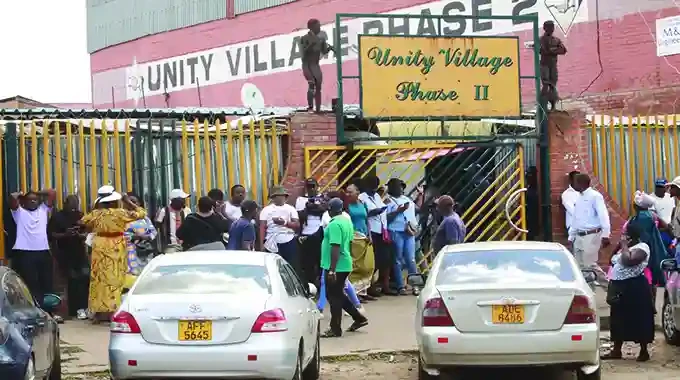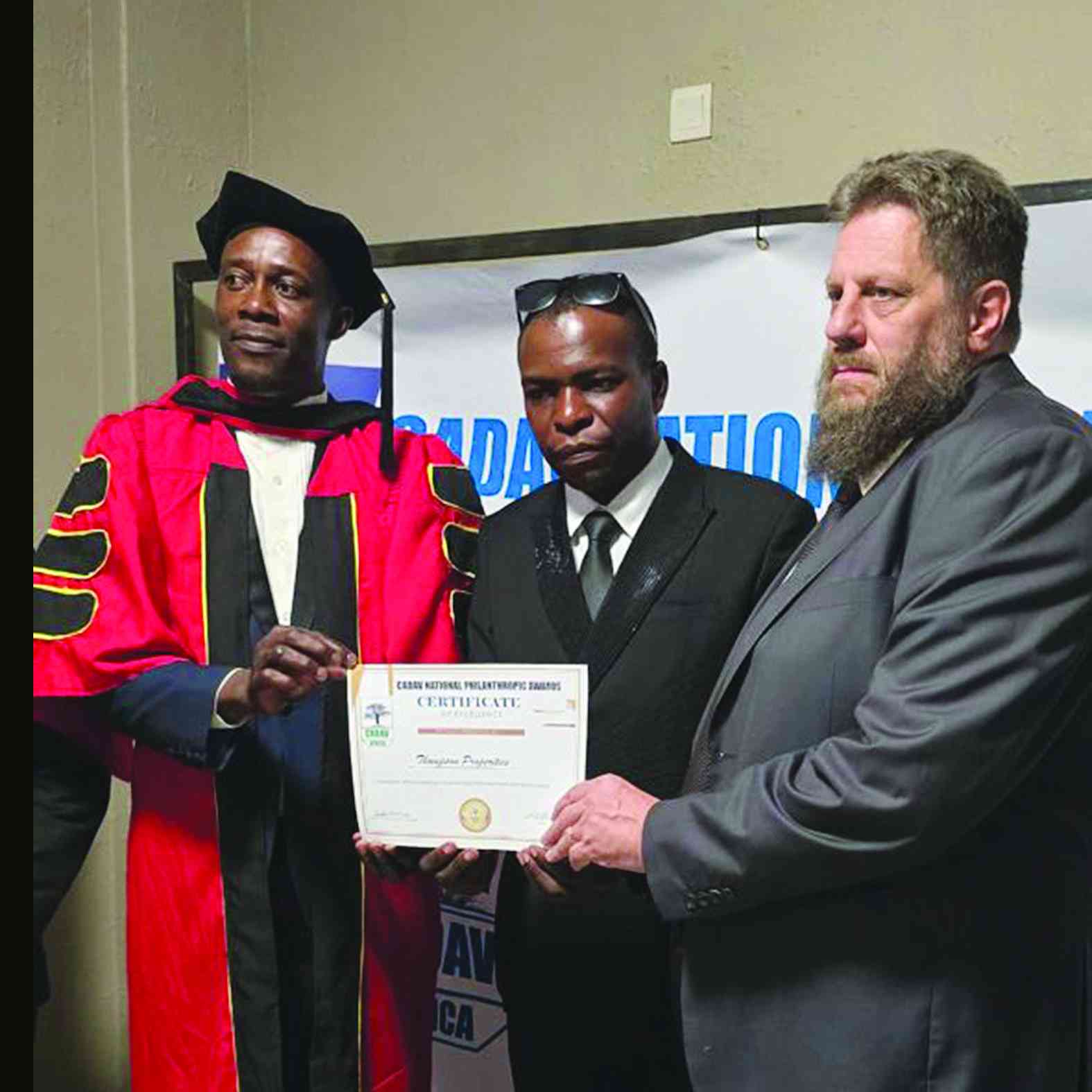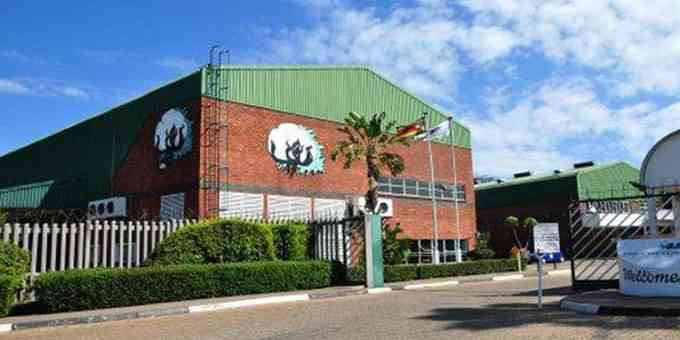Entrepreneur Paula Marowa says being raised by a single mother and becoming an orphan at an early age drove her passion for business.
Marowa (PM), the founder and executive director of Rukanda Pride who are manufacturers of top-end leather products, opened up about her journey in business on the platform In Conversation with Trevor hosted by Alpha Media Holdings chairman Trevor Ncube (TN).
Below are excerpts from the interview.
TN: Paula Mazvita Marowa, welcome to In Conversation With Trevor.
PM: Thank you Trevor. Thank you for having me.
Keep Reading
- Masunda lands global sugar industry position
- In Conversation with Trevor: Chisamba: Let’s be proud of ourselves
- In Conversation with Trevor : How car crash changed my life
- In Conversation With Trevor: ‘We lost our humanity’
TN: Explain to me the name Mazvita? I love middle names, what does it represent?
PM: Mazvita means thank you.
TN: Right.
PM: my grandmother is the one that named me Mazvita.
TN: Yeah.
PM: [She] was grateful that God gave them a beautiful child.
TN: How many are you in your family?
PM: We are three; three girls, I am the middle child.
TN: You are the middle child.
PM: Yes.
TN: You are 27 years old?
PM: I am 27 [years old].
TN: I am blown away by what you are doing.
PM: Thank you.
TN: You manufacture this thing?
PM: Yes.
TN: This is beautiful.
PM: Thank you.
TN: Leather products?
PM: Yes.
TN: You also manufacture this bag, and many others. You do belts.
PM: Yes.
TN: You do wallets?
PM: Correct.
TN: We will get to that part of your journey, but I want us to go to your beginnings. You worked in Victoria Falls.
You worked with Vision Consulting Africa, and you decided to quit.
Talk to me about the experience of your early journey working in Victoria Falls? And why you decided I'm going to walk away from this?
PM: Okay. So, to begin with the reason why I chose to go to Victoria Falls soon after completing my ‘O’ Level was because I needed to help out at home considering that we were orphans.
We were orphaned at an early age, I was nine years and my little sister was six.
So, we were taken to my paternal grandparent’s place in Highfield.
When I finished ‘O’ Level I felt the need to help out at home considering my little sister was still in school.
That is why I had to go to Victoria Falls to look for a job.
Actually, my cousin employed me there.
I was working as a call agent.
What I would do there is work and send money back home for the welfare of my little sister.
After a while I realised that the money was not really enough, so again I [decided] to come back home.
But when I came back home my cousin then hooked me up with another company back in Harare which is another call agency. So I was doing pretty much the same thing.
TN: So you are an orphan? You lost your mother and father?
PM: Correct.
TN: Talk to me about that?
PM: Well my mother was a single mom. I never really had time with my father. So she passed on in 2006.
TN: You were nine-years-old?
PM: I was nine then. That is just where everything began, because we were then taken to my grandparents and life then became different because now it [was] different parenting style.
You get to learn different things and because my parents were divorced we did not really have a relationship with my father's side of the family.
So it [was] like we were learning each other. It was pretty hard,, but adaptable.
TN: And then your father passed on too?
PM: My father passed on first.
TN: Okay.
PM: Yes, but then there was not really much of a difference because [we were] already staying with just our mom.
TN: And you went to stay with your grandparents where?
PM: In Highfield.
TN: Highfields.
PM: Yeah.
TN: What was that like?
PM: Like I mentioned, it was different because when my parents divorced, I think it was not a peaceful divorce, so we never really had a good relationship with my father's side of the family.
So going there after my mother passed on was something new to us because we were going there and we had to learn another way of living, something that was different from what we were doing with our mom.
TN: With that kind of upbringing, when you look back what lessons good or bad did you get from this upbringing?
Losing your parents, you were young, your parents got divorced, you did not spend time with your father and eventually you are raised by your grandparents?
PM: I think one lesson that I can draw from that is that it takes a village to raise a child.
It is not always your parents that will bring you up, and whenever you go to stay with a different person it is always advisable to quickly learn what they want so that there are no problems. You [then] do not become a burden in their lives.
TN: I like your “you quickly learn what they want”.
PM: True.
TN: Because you are living with them isn't it?
PM: Yes.
TN: And is grandmother still alive?
PM: No she passed on, sadly.
TN: So she never got to see the kind of work that you do?
PM: Oh she never did, she never did.
TN: And when did you start sensing that you had this gift to do what you are doing?
PM: From a very young age.
TN: How young?
PM: I think from when my mother was alive because my mother was a hustler.
She was a corporate woman, but again she was a hustler because she needed to take care of three girls on her own.
So I think that anchored the entrepreneur in me.
I could see that okay my mother is an independent woman and she can do this, she's hustling, so that to me paved a way for my entrepreneurial journey because sometimes we were forced to help her.
I would like to say forced because at that time mom would give you no choice, you were forced to go and help her out.
TN: And what was she doing? What has her hustle?
PM: She would sell different stuff. So my mother would go to Mozambique to get different stuff to sell.
She never really had one hustle, so for me to then say oh my mom was in this kind of trade it is actually hard to say that because she would do different things really.
Sometimes she would bring stuff and then she would make us pack everything or whenever she was going for her deliveries we would help out and everything like that.
TN: So you say that when you went to Victoria Falls and then you came back you looked at fashion as a way of survival?
Talk to me about that approach to life?
PM: Okay, so when we were staying in Highfield with my grandparents we were staying with my aunt as well, my father's sister.
So, she had a flea market, [and] because we were additions to the family I always felt like okay I needed to help out.
I would go to the flea market because at the school that I went to there was hot-sitting. I do not know if you know what hot sitting was?
TN: I do, yeah. Two classes or three classes same chair.
PM: Exactly. So what we would do is whenever I was meant to go to school in the afternoon I would go to the fleamarket in the morning.
TN: How old were you then?
PM: Soon after I went to Highfield I was around 19-years-old, meaning my selling skills are 17 years now.
Seventeen years of experience in selling hahaha.
Anyway, so I would go to the flea-market in the morning when I was meant to go to school in the afternoon then I would go to the flea market in the afternoon or vice versa.
I would go to the flea-market in the afternoon when I was to go to school in the morning.
So my aunt used to sell baby wear.
So, when I came back from Victoria Falls I understood baby wear better than anything else, so I ventured into the very same thing.
I just got myself a passport, then my first trip was [to] Musina because that is what I could afford at that time.
I went to Musina, I think I would get my stuff from Pep, yes because it was cheaper.
TN: Cheaper!
PM: Yes. So, I would get my stuff from Pep, come back [and] sell as much as I could because now when I came back I had to take my little sister.
By the way, at one point me and my little sister were separated.
She then went to my mother's side of the family and I remained at my father's side of the family.
When I came back I did not have the power to say I am taking my little sister so that I can take her back to my father's side. So I had to [decide] to just take her in and stay with me. I was 17 [years old] by the way.
TN: Wow.
PM: Yes. Now, because I had my little sister's school fees, I had our upkeep, rentals, I had to work hard. I had to juggle between the business and the job.
TN: I am drawn to you saying that early in your life you had this drive to help [aged] nine or 10-years-old. You want to help your sister.
Talk to me about that and where it comes from and what it feels like?
PM: I think helping out, in the beginning it felt like I was obliged to until it just started to feel like oh I have to because it is my sister [and] if I do not then who will?
And just really knowing that we were additions to the family, they never had a relationship with us but they took us in so I felt the need to help.
- “In Conversation With Trevor” is a weekly show broadcast on YouTube.com//InConversationWithTrevor. The conversations are broadcast to you by Heart and Soul Broadcasting Services. The conversations are sponsored by WestProp Holdings.





